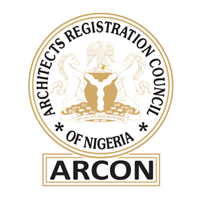Building plan approval is a mandatory procedure before starting any construction project. It ensures that the proposed structure complies with local building codes, zoning laws, and other regulations. This step is essential to guarantee safety, sustainability, and legal adherence throughout the construction process.
This issue will form the basis for our discourse today as we look at the topic: Building Plan Approval: A Crucial Step in the Construction Process.
Good afternoon, Dear colleagues, welcome from another restful weekend and please stay tuned!
Importance of Building Plan Approval
- Legal Compliance : Ensures the project meets all legal requirements, preventing potential fines and legal disputes.
- Safety : Confirms that the construction plan adheres to safety standards, reducing risks of structural failures and accidents.
- Zoning Compliance : Ensures that the building is appropriate for its intended use and location, preserving the neighborhood’s character and functionality.
- Infrastructure Management: Ensures that new buildings do not overburden existing infrastructure like roads, drainage systems, and utilities.
- Environmental Protection : Evaluates environmental impacts and enforces measures to minimize ecological damage.
The Approval Process
- Pre-Application Stage:
- Initial Consultation : Engaging with local planning authorities (e.g., Urban Planning Authority) to understand specific requirements and guidelines.
- Feasibility Study : Conducting assessments to determine the project’s viability considering local conditions and regulations.
- Application Submission:
- Documentation: Providing comprehensive plans, including architectural designs, structural drawings, environmental impact assessments, and other necessary documents.
- Fees: Paying the required application fees, which vary depending on the scope and scale of the project.
- Review Process:
- Technical Review: Local authorities (e.g., the Lagos State Physical Planning Permit Authority) review technical aspects such as structural integrity, safety measures, and compliance with local building codes.
- Public Notification: In some cases, public notices are issued to inform the community and gather feedback, particularly for large-scale developments.
- Approval and Permits:
- Conditional Approval: Addressing any conditions or modifications stipulated by the reviewing authorities.
- Final Approval: Receiving final approval and the necessary building permits to commence construction.
- Post-Approval Compliance:
- Inspections: Conducting periodic inspections during construction to ensure ongoing compliance with the approved plans.
- Completion Certificate: Obtaining a certificate of completion from the relevant authorities upon successful inspection of the finished project.
Common Challenges
- Complex Regulations : Navigating the intricate and sometimes opaque regulatory framework can be challenging for stakeholders.
- Bureaucracy : The approval process can be slow due to bureaucratic inefficiencies, leading to delays in project timelines.
- Documentation : Ensuring accurate and comprehensive documentation is a significant task that can lead to delays if not handled properly.
- Corruption : Instances of corruption can complicate the approval process, adding unofficial costs and delays.
- Community Opposition : Managing objections and concerns from local residents and stakeholders, particularly for large-scale or disruptive projects.
Conclusion
The building plan approval process is indispensable for ensuring that construction projects meet safety standards, legal requirements, and sustainable development goals. While the process can be complex and challenging due to factors such as bureaucratic inefficiencies and corruption, it plays a crucial role in safeguarding public safety and maintaining orderly urban and rural development.
Stakeholders must navigate a detailed and sometimes opaque regulatory framework, which necessitates thorough preparation and engagement with local authorities. Ensuring accurate and comprehensive documentation is vital to avoid delays and potential legal issues. By adhering to the stipulated regulations, developers can prevent costly fines, project halts, or the risk of having non-compliant structures demolished.
Proactive engagement with regulatory bodies, transparency in dealings, and addressing community concerns can significantly smooth the approval process. This not only facilitates timely project completion but also fosters goodwill and cooperation from local communities.
Ultimately, the building plan approval process ensures that the constructed environment supports safe, functional, and sustainable living conditions. By understanding and effectively navigating this process, developers contribute to the broader goal of responsible and structured development, benefiting both their projects and the communities they serve. This adherence to regulations promotes trust, reduces risks, and enhances the overall quality and resilience of the built environment in Nigeria.


